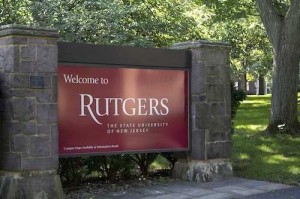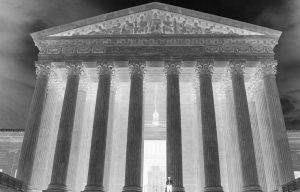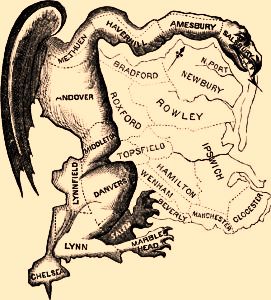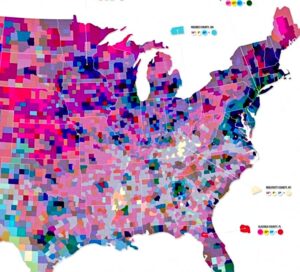Podcast: Play in new window | Download
How Affirmative Action Programs In Colleges and Universities Were Overturned
On June 28, the Supreme Court made front page headlines for gutting race-based affirmative action in colleges and universities. The decision rejected race-conscious admissions at Harvard College and the University of North Carolina. The Court’s conservative supermajority ruled in favor of Students for Fair Admissions, a nonprofit founded in 2014, that sued Harvard and the University of North Carolina over their admissions programs. The group, headed by right-wing activist Edward Blum, alleged that the programs violated Title VI of the Civil Rights Act of 1964 by discriminating against Asian American applicants in favor of white applicants.
Paving the way for overturning 40-years of legal precedent was one group that we’ve covered for years on Law and Disorder: The Federalist Society for Law and Public Policy Studies. This conservative, libertarian organization advocates for a textualist and originalist interpretation of the U.S. Constitution. Over several decades, until recently working under the radar, the Federalist Society has dramatically altered the legal landscape in this country.
Guest – civil rights attorney Michael Avery, co-author with Danielle McLaughlin of the 2013 book, The Federalist Society: How Conservatives Took the Law Back from Liberals, and a recent article in Truthout co-authored with Prof. Mark Brodin on the Federalist Society’s attacks on affirmative action. Professor Emeritus at Suffolk University Law School, Michael was president of the National Lawyers Guild and served as president of the board of the National Police Accountability Project.
—-
Here’s What “Moore v. Harper” Means for Voting Rights Going Forward
On June 27, the U.S. Supreme Court decided a case that protected voting rights from an obscure theory that could have eliminated the right of state courts to review new voting provisions enacted by state legislatures.
In Moore v. Harper, a 6-member majority of the high court rejected the “independent state legislature” doctrine. Conservative legislators in North Carolina had sought to maintain an extreme gerrymandered congressional map they had drawn that favored Republicans.
Although Chief Justice John Roberts has a track record of decisions that weakened the right to vote, he wrote the Court’s opinion in Moore, as well as in Allen v. Milligan on June 8, both of which strengthen voting rights.
Guest – Marjorie Cohn wrote the article titled, Here’s What “Moore v. Harper” Means for Voting Rights Going Forward, that was published by Truthout. Marjorie is professor emerita at Thomas Jefferson School of Law, former president of the National Lawyers Guild, and a member of the Bureau of the International Association of Democratic Lawyers. She is also on the advisory boards of Veterans for Peace, Assange Defense, and the American Association of Jurists. She writes frequent articles and provides commentary about legal and political issues. Marjorie’s most recent book is Drones and Targeted Killing: Legal, Moral, and Geopolitical Issues.
Hosted by attorneys Heidi Boghosian and Marjorie Cohn
———————————–




